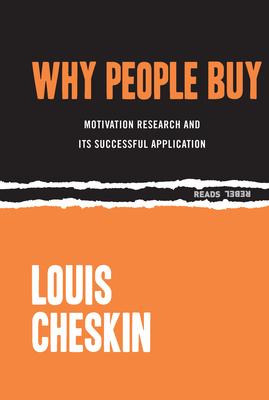There are several competing brands on the store shelf. What will cause the shopper to purchase one product over another? Is it the brand name, the brand-identifying image, the design of the package, the color, or ads about the product that the consumer might have seen? In this 1959 classic, Cheskin answers these and many other questions by presenting his insights into human motivation as expressed in purchasing decisions. Bringing psychological insights to bear on market research, Cheskin shows how motivations that can indicate acceptance and value of brands, along with packaging, are the bearers of meaning for products. By investigating these deep connections, Cheskin demonstrates how marketers can effectively position products for sale in the marketplace.
Louis Cheskin (1907-1981) was a marketing innovator who observed that people's perceptions of products were directly related to aesthetic design. Cheskin discovered that most people make unconscious assessments of a product based on secondary sensory input associated with the product, such as its color or shape, which contribute to a general impression which he called "sensation transference." This concept revolutionized advertising and marketing.
